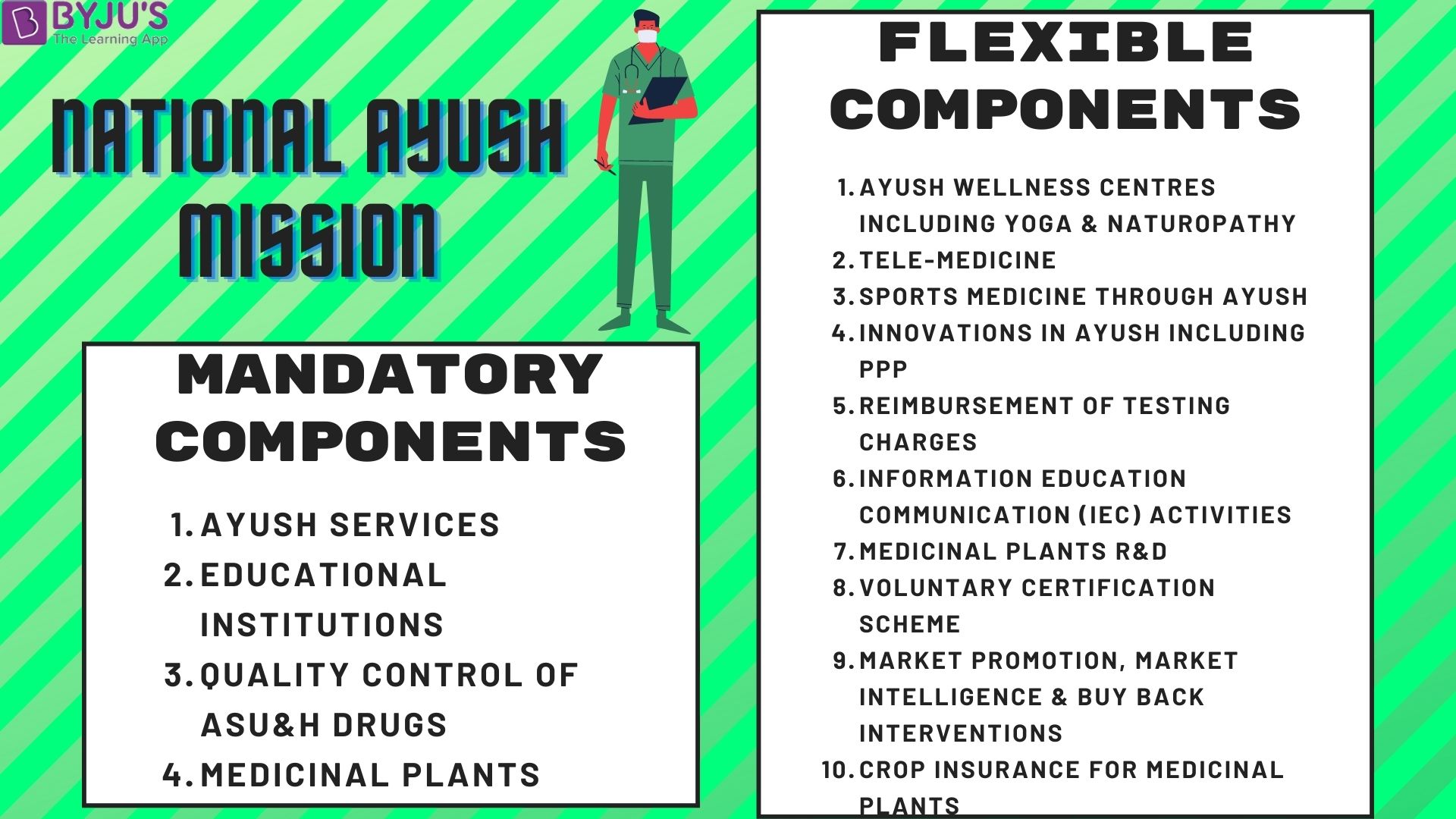Government schemes are important for the UPSC exam. Every year, questions are asked about them in the UPSC Prelims and also the IAS Mains. In this article, you can learn about the National Ayush Mission (NAM) for the IAS exam.
There are various government missions targeting different objectives. An aspirant must read about some important government initiatives linked below:
National Ayush Mission (NAM):- Download PDF Here
What is National Ayush Mission?
The National Ayush Mission is a centrally sponsored scheme launched in 2014 by the Department of Ayush, Ministry of Health and Family Welfare.
- The fundamental objective of the NAM is to promote the AYUSH systems of medicine through cost-effective services, boosting its educational systems, quality control of AYUSH drugs and ensuring the sustainable availability of AYUSH raw materials.
- AYUSH stands for Ayurveda, Siddha, Unani and Homoeopathy systems of medicine.
- The vision of the Ayush Mission are:
- Providing cost-effective and equitable AYUSH healthcare all over India by enhancing access to the services.
- Strengthening and revitalising the AYUSH systems enabling them to become prominent medical streams in the country in the healthcare sector.
- Improving educational institutions that can impart knowledge in AYUSH streams.
- Promoting quality control of AYUSH drugs by developing quality standards and ensuring the availability of AYUSH raw materials.
National Ayush Mission Logo:

Also read: Gist of Yojana May 2020 Issue: Universal Health
National AYUSH Mission Objectives
The stated objectives of the National AYUSH Mission are described below.
- Offering cost-effective AYUSH services to the people through AYUSH hospitals, dispensaries, and also providing AYUSH facilities in the Primary Health Centres (PHCs), Community Health Centres (CHCs) and District Hospitals (DHs).
- Boosting institutional capacities at the state level for AYUSH systems by upgrading educational institutions, drug testing labs, AS&U pharmacies (Ayurveda, Siddhi and Unani), and also AS&U enforcement mechanism.
- Supporting the cultivation of medicinal plants by adopting Good Agricultural Practices (GAPs) so as to provide a sustained supply of quality raw materials for AYUSH drugs.
- Aiding the establishing of clusters through the convergence of cultivation, value addition, warehousing, marketing & developing infrastructure for entrepreneurs.
National AYUSH Mission Components
The NAM consists of two broad components: Mandatory and Flexible. The following image gives the details of the components of the AYUSH Mission.

AYUSH Health and Wellness Centres
In March 2020, the Union Cabinet approved the inclusion of the AYUSH Health and Wellness Centres (HWCs) component of Ayushman Bharat under the National AYUSH Mission.
- This inclusion is aimed at setting up a holistic wellness model based on AYUSH principles and practices with an emphasis on preventive, curative, promotive, rehabilitative & palliative healthcare through an integration with the current public healthcare system.
- The National Health Policy 2017 advocates the mainstreaming of the potential of AYUSH systems within a pluralistic system of integrative healthcare.
- AYUSH HWCs are focused to deliver an expanded range of services that go beyond maternal and child health care services to include care for non-communicable diseases, palliative and rehabilitative care, oral, eye and ENT care, mental health and first-level care for emergencies and trauma, including free essential drugs and diagnostic services.
Comments